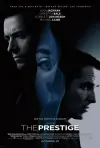
Meaning of Woo Sé Mama - Paul Weller
Paul Weller's song "Woo Sé Mama" intricately explores themes of individuality, societal expectations, and the perennial quest for authenticity. Within its lyrical landscape, Weller crafts a narrative that delves into the diverse attitudes people adopt towards life and the nuanced choices they navigate in pursuit of their respective paths. The recurrent refrain, "Woo sé mama waiting on that corner, Woo sé mama but you don't get me," resonates with a profound sense of defiance and independence, emblematic of a rebellion against societal norms and pressures.
The song's inception juxtaposes contrasting approaches to existence, portraying individuals who find solace in familiarity and stability, often symbolized by "a ball and chain," alongside those who yearn for emancipation and aspire to transcend conventional boundaries. Lines such as "Some have joined the ranks, love the things they once hated, pretend they're still in command" eloquently underscore the tension between conformity and the hidden desires individuals harbor beneath their outward facades.
As the song unfolds, Weller offers poignant reflections on the inexorable passage of time and the inevitable shifts in priorities that accompany the journey of life. The metaphorical imagery of "Once that flame don't burn so bright, it's slow death by candlelight" evokes a poignant sense of resignation and the gradual dimming of passion and vitality over the years. This imagery fosters contemplation on the acceptance of a less vibrant existence and the resignation to life's inevitable changes.
The recurrent refrain of "Woo sé mama waiting on that corner" serves as a poignant reminder of the longing for validation or approval, whether from society at large or from specific individuals. However, the defiant proclamation of "but you don't get me" signifies a steadfast refusal to conform to external expectations or succumb to societal pressures. This bold declaration underscores the protagonist's unwavering resolve to forge their own path and navigate life on their own terms.
Moreover, the song delves into the darker aspects of human nature, exploring themes of greed and selfishness through vivid imagery and stark commentary. References to individuals who prioritize personal gain at the expense of others, as depicted in lines like "Some like to shift the same, don't wanna share the cream, would hold the poor to blame, and never feel guilty," provoke contemplation on societal inequities and the refusal to acknowledge privilege.
In summation, "Woo Sé Mama" emerges as a profound commentary on the intricate complexities of human existence, grappling with the perennial struggle for authenticity amidst societal expectations. Through its poignant lyrics and soul-stirring delivery, the song invites listeners to introspect on their own values and choices, urging them to embrace their individuality and resist the pressures to conform to societal norms.


